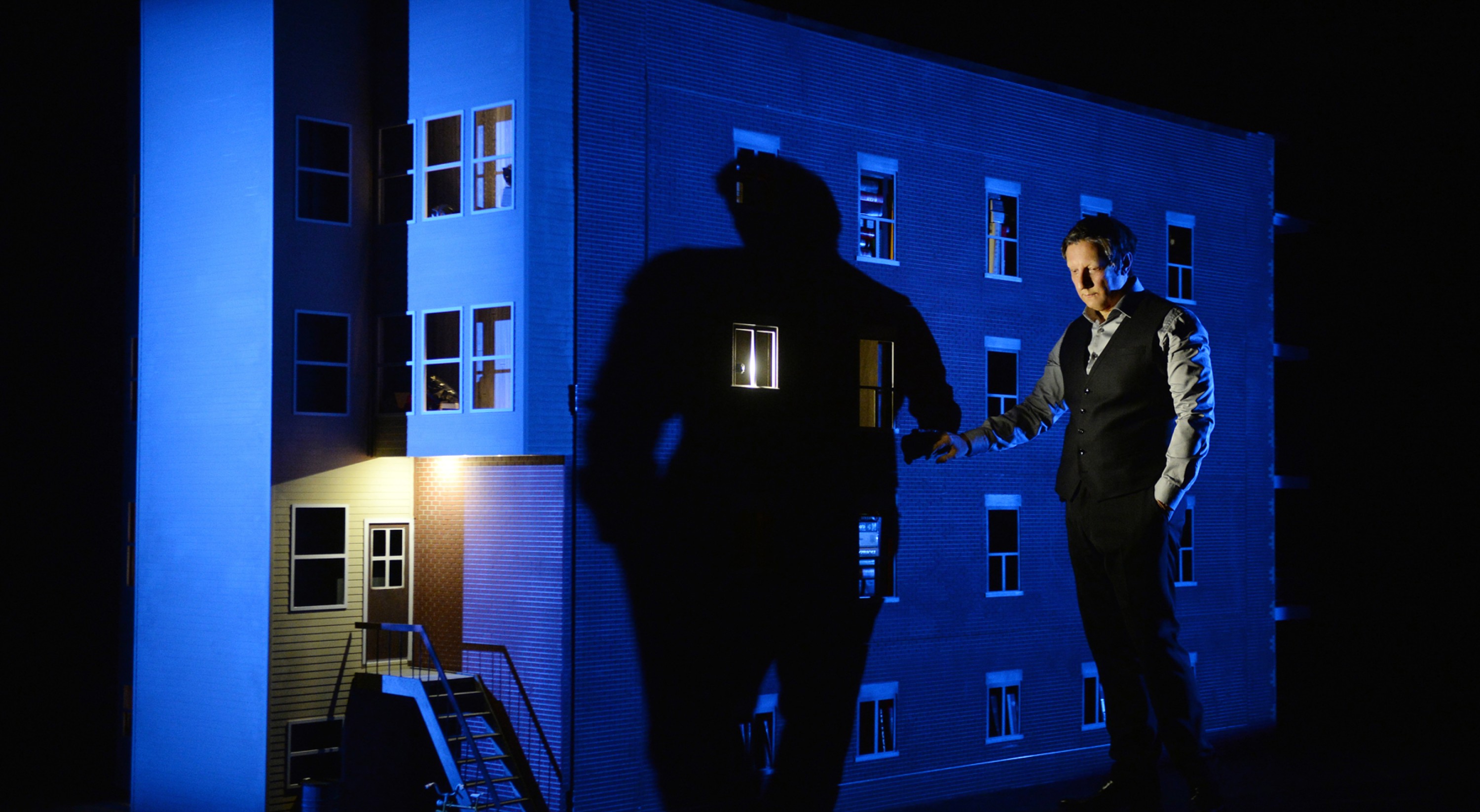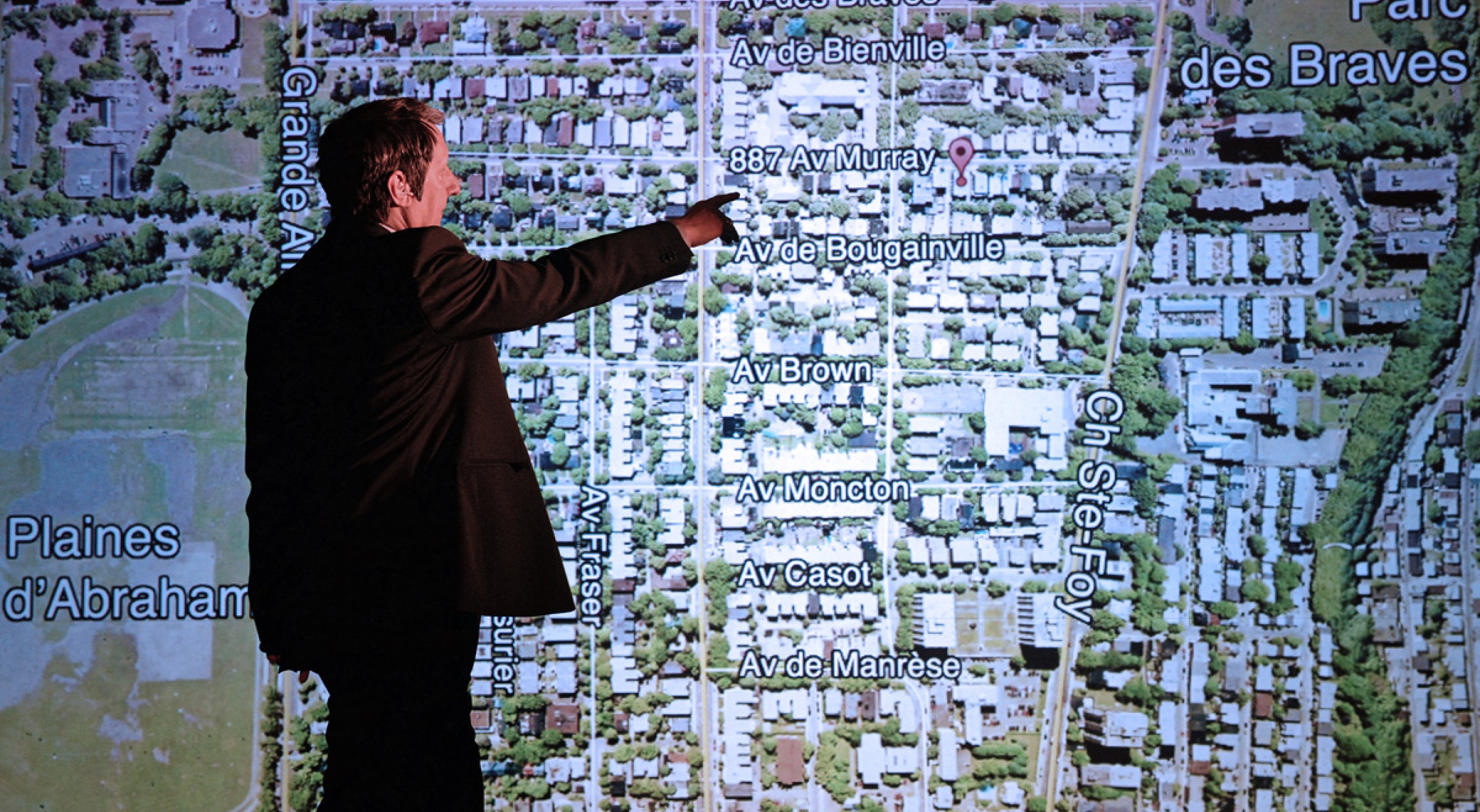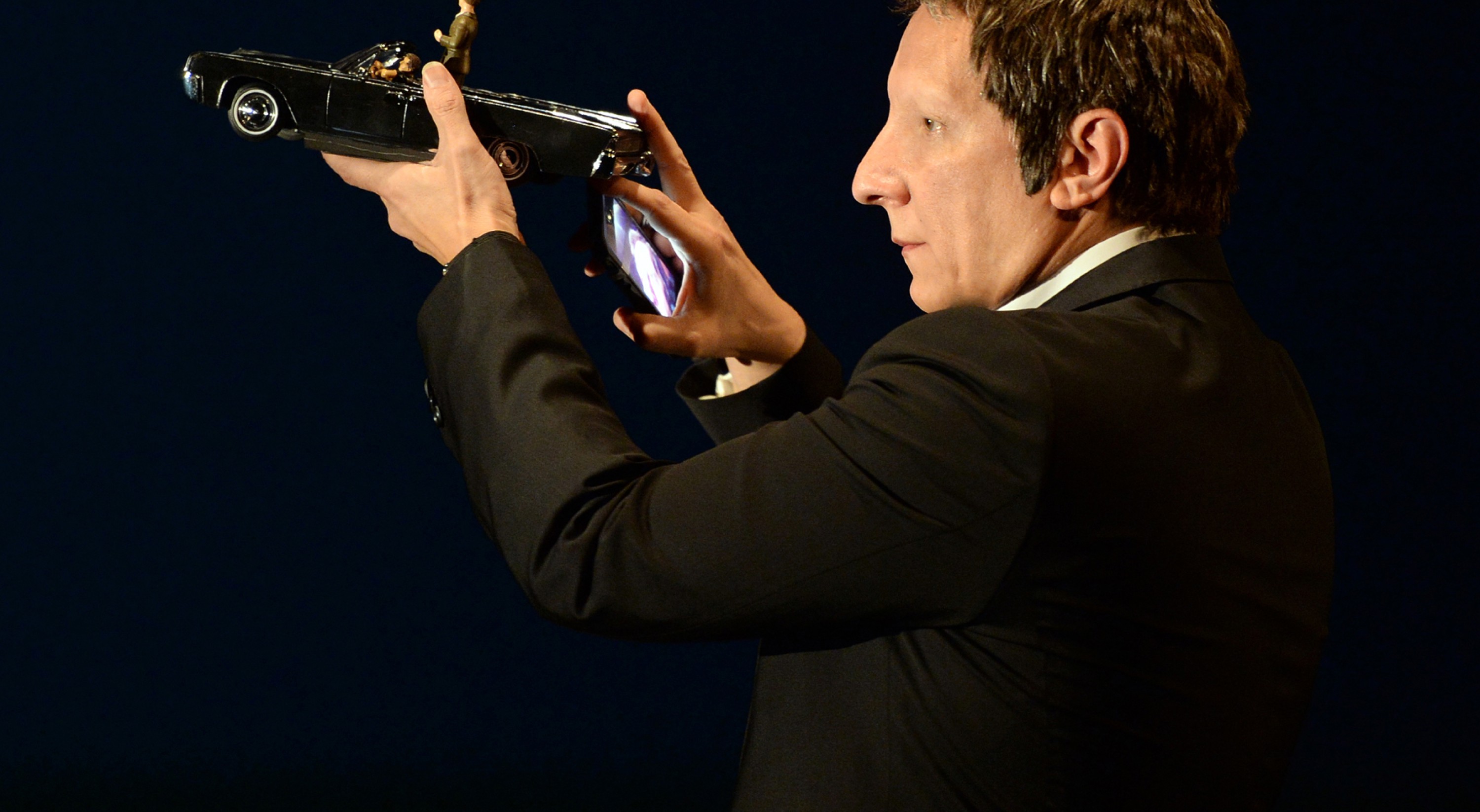Ex Machina / Robert Lepage
887
septembersept 9 – 17
Written, directed and performed by , Robert Lepage
Creative Director, Steve Blanchet
Dramaturgy, Peder Bjurman
Assistant Director, Adèle Saint-Amand
Composer and Sound Designer , Jean-Sébastien Côté
Lighting Designer, Laurent Routhier
Image Designer, Félix Fradet-Faguy
Associate Set Designer, Sylvain Décarie
Associate Properties Designer , Ariane Sauvé
Associate Costumes Designer, Jeanne Lapierre
An Ex Machina production, commissioned by the Arts and Culture Programme of the TORONTO 2015 Pan Am and Parapan Am Games // In coproduction with le lieu unique, Nantes ; La Comète – Scène nationale de Châlons-en-Champagne ; Edinburgh International Festival ; Théâtre de la Ville-Paris ; Festival d'Automne à Paris ; Romaeuropa Festival 2015 ; Bonlieu Scène nationale d’Annecy ; Célestins, Théâtre de Lyon ; Le Théâtre français du Centre national des Arts d’Ottawa ; Le Théâtre du Nouveau Monde, Montreal ; Programmes culturels SFU, à l’occasion du 50e anniversaire de l'Université Simon Fraser, Vancouver // Associate producer Europe, Japon, Epidemic – Richard Castelli // Producer for Ex Machina, Michel Bernatchez // In partnership with Théâtre de la Ville-Paris ; Festival d’Automne à Paris // Funded by Canada Council for the Arts, Quebec's Arts and Literature Council and the City of Quebec.
In association with France Inter
After a run of shows of a more spectacular nature (La trilogie des dragons, the Jeux de Cartes project and various collaborations with Cirque du Soleil), this latest work sees a return, by Robert Lepage, to the “solo work” format, in an exploration into the workings of memory. 887 may well be about the summoning up of personal recollections, but this does not make it an autobiographical tale. Anecdotes and historical considerations of a more wide-ranging nature invariably find themselves becoming interwound. The 1960’s. Quebec. Montreal. 887 boulevard Murray. From within this block of flats, the mirror of a society at the dawn of major upheavals, young Robert discovers theatre for the first time, in the course of games invented with his sister. In the background is the muted sound of the Quebec Liberation Front’s first bombs going off. We enter into this building via the window, surreptitiously, just as we might break into a person’s mind. The stage topography is of both the mental and geographic kind, and transforms itself in time with mysterious synaptic connections. Robert Lepage is a groundbreaking teller of stories. His ubiquitous brand of theatre rises above frontiers of all kinds, spatial or temporal. One distance it does, however, keep to is that of the tender, ironic detachment afforded by the passing of the years. What is left in suspense is what makes 887 an intimate work. It is an ode less to the mother country and its “Je me souviens” or “I remember” motto - than to the father’s silence. And to the art of the actor, a craft in which memory is the cornerstone.
In the same place


